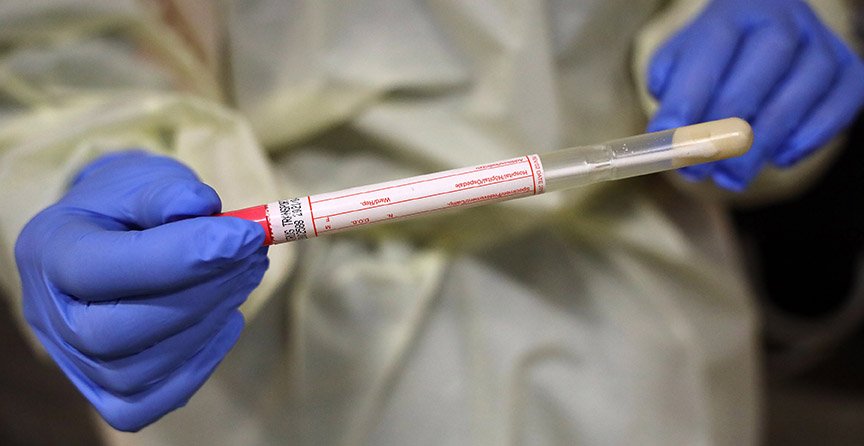A proposed Covid-19 testing strategy specifically for healthcare professionals is under consideration by the national public health emergency team (NPHET) with a decision expected by the end of this week or early next week, the Medical Independent (MI) can reveal.
The strategy was presented to NPHET last week by Dr Lorraine Doherty of the Health Protection Surveillance Centre (HPSC) and contains a range of proposed measures to manage Covid-19 infection risk in healthcare workers in Ireland. These include: Repeat testing of certain healthcare staff, blanket testing of healthcare workers in hospitals with high incidence of the virus; a serology testing exercise in hospitals with a high incidence of the virus; and testing of healthcare staff moving from high infection rate areas to lower infection areas.
The HSE has already commenced a new mass testing exercise for nursing home staff where staff are being tested weekly for four weeks to determine if this would help stop the spread of Covid-19 in residential settings and to see if such an approach would be useful in other healthcare settings too.
About 32 per cent of the total number of confirmed Covid-19 cases in Ireland to date have been associated with healthcare workers, (over 8,130 cases out of 25,303 cases as of 13 June). This remains one of the highest rates in the world with calls by the Irish Nurses and Midwives Organisation (INMO) for an investigation into why this is the case, and for additional measures to try to address the issue such as regular testing in high-risk settings.
Responding to questions from MI on what the HSE was doing to better protect healthcare workers from Covid-19 infection risk, HSE Chief Clinical Officer Dr Colm Henry said the adequate provision of personal protective equipment (PPE) and prioritised testing had been a consistent feature of the approach to date.
“Testing is not a control measure in itself. It informs control measures in order to protect healthcare workers, protect from transmission of the virus to patients, and break the chain of infection of the virus. We’ve learned a lot about testing of healthcare workers in the past weeks. The blanket exercise in nursing homes showed a low level [of infection among healthcare workers] though,” Dr Henry told MI.
Changeover
Concern has been raised about the risks of the NCHD changeover in July.
This would see NCHDs going to different hospitals all over the country, with many moving from hospitals with high numbers of Covid-19 cases to hospitals which currently have no cases of Covid-19. Dr Henry acknowledged this issue was under consideration in relation to the proposed testing strategy.
“I’ve had engagement with the colleges on this and have listened carefully to their concerns and that has been reflected in the testing strategy from Dr Doherty,” he said.
The majority of Covid-19 cases associated with healthcare workers in Ireland have been in frontline healthcare workers, predominantly nurses (32.3 per cent), healthcare assistants (25.7 per cent), and allied healthcare workers (23.4 per cent), with doctors making up just 6 per cent (down from 11.5 per cent in April), and porters 1.1 per cent of cases, according to HPSC data up to 30 May.
Some hospitals in particular have had a high number of Covid-19 cases among their staff. For example, by mid-May in excess of 300 staff at the Mater Misericordiae Hospital in Dublin had tested positive for Covid-19 and a further 1,500 had self-isolated following contact tracing to protect patients, fellow staff and the public.
As of 30 May, seven healthcare workers in Ireland had died from Covid-19, and over 280 had been hospitalised and 43 had been admitted to ICU.
Data supplied to the INMO shows that, as of 30 May, out of 5,467 cases (of a total 8,018 cases) of infected healthcare workers where the source of transmission was known, 88 per cent probably contracted the virus at work (predominantly nursing homes and hospitals), 4 per cent from contact with a confirmed case, 3 per cent from travel, 3 per cent from community transmission, and 1 per cent from a healthcare setting as patients.
As of 20 May there had been 53,017 appointments offered to healthcare workers for a Covid-19 test as part of community testing, figures supplied to MI show. This includes people referred by their GP, and those who had a test as part of the large-scale testing exercise in nursing homes.













Leave a Reply
You must be logged in to post a comment.